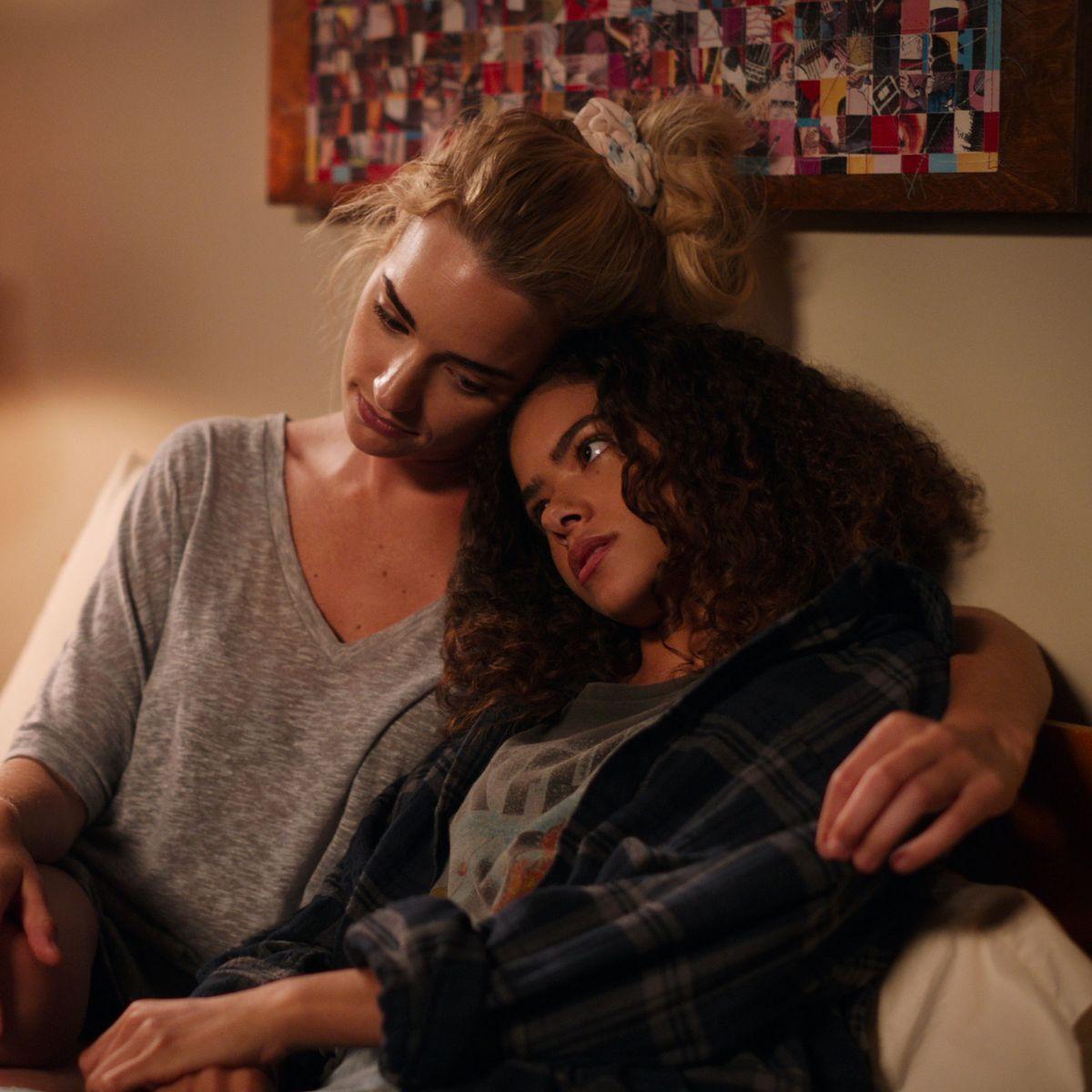Stars: 4/5
First impressions matter because I have never been so turned off by a Netflix trailer before in my whole life. Between the chaotic, clunky dialogue and awkward stance against racism, “Ginny & Georgia,” barely reaches its potential.
“Ginny & Georgia” follows Wellsbury’s latest mother-daughter duo. It’s a mixture of “Big Little Lies” and “Pretty Little Liars.” It explores familial dynamics, biracialism and suburban culture. I don’t know if the show is good because of the main characters holding it up or because I placed the terrible teen scenes aside.
Firstly, I don’t know what is going on in the writer’s room for Netflix teen dramas, but they need to interact with a real member of Gen-Z. Who is playing actual “Oppression Olympics” with their friends? This is not Twitter. But luckily, the dialogue and cringy scenes brought “Ginny & Georgia” attention after surfacing across the internet.
This show demonstrates the tense relationship between Ginny and Georgia (played by Antonia Gentry and Brianne Howey), and the hardship that Georgia endured to provide more for her children. Georgia is the show’s glue. She is cunningly charismatic that it’s scary. Georgia is a pure anti-hero who makes one question her actions yet understand them at the same time.
The main issue with this show is the title character, “Ginny.” If ungratefulness and hypocrisy could be personified, Ginny would be it. I understand the teenage angst, we’ve all been there, but she is barely tolerable. She makes her life 10x harder.
Ginny is a socially conscious feminist who belittles and slut-shames her mother and treats people around her poorly. She’s been through a lot, but Georgia has done so much for her. Ginny debates with her English teacher on her first day about the lack of inclusivity in the class’s literature choices, which was my lovely Netflix trailer, yet she allows her friends to frame her for shoplifting. Mind you, Ginny is a Black passing biracial girl.
Next, MANG (Maxine played by Sara Waisglass, Abby played by Katie Douglas, Norah played by Chelsea Clark, and Ginny) are not a healthy girl group. They don’t have the same charm that the Plastics from “Mean Girls” have to be this toxic. They are not good for each other and especially Ginny. Max actually has a personality out of the girls, deserves better, yet is annoying at times. Abby has parent issues, and she is the main reason for most of the drama in the clique. At one point, she assaults Ginny after weeks of belittling and giving her a cold shoulder. Norah is the follower of Max, and that’s it. The only good thing about them was their Halloween costumes as Britney Spears.
Obviously, Ginny wants friends, but all her friends are bratty and self-centered. Thank God that Ginny finally found a Black friend, Bracia (played by Tameka Griffiths) to talk to. But what confuses me about the show is that it wants to address Ginny’s biracial identity and her father’s side. But Ginny almost dodges interacting with a Black person unless it’s to confine and rant about her issues. Once again, Black people are props for the protagonist.
Also, Georgia calls the cops on her daughter, which made me uncomfortable. It’s tone-deaf, but nothing came from it. The hair scene and a few conversations with her father were perfect chances for Ginny to speak about her identity. But no, we get Hunter (played by Mason Temple) and Ginny’s poorly written “Oppression Olympics” argument.
“Your bars could use a little work, homie,” Hunter yelled. I wish I was kidding.
Every scene with Hunter is either a problem or cringe. The writers tried convincing us that he was so great, but he was so bland. The sexual tension between Ginny and Marcus (played by Felix Mallard) stole the show. The writers dragged Hunter through the mud. Hunter was a cheesy, nice boyfriend, and honestly, Ginny did not deserve him. She also didn’t deserve Marcus.
Meanwhile, Georgia juggles being the mayor’s assistant, a single mother, and running from her past. I liked the flashbacks throughout the season because they showed how Georgia became Georgia. She isn’t perfect and knows that and embraces it. Every chance she gets, she tries to be a better parent. However, her flaws of being power-hungry and ruthless hinder her relationships, especially with her children.
The secrets and tension between the town’s mothers also save “Ginny & Georgia.” It knows how to balance suspense with a coming-of-age story. It leaves viewers with a daunting cliffhanger. Overall, “Ginny & Georgia” has a nice foundation for a second season to explore the themes the first season brushed off.
Head to Head Rev Rank: ‘Ginny & Georgia’ has tons of potential and cringe worthy scenes
By Ariel Baise
March 17, 2021
Ginny and Georgia







